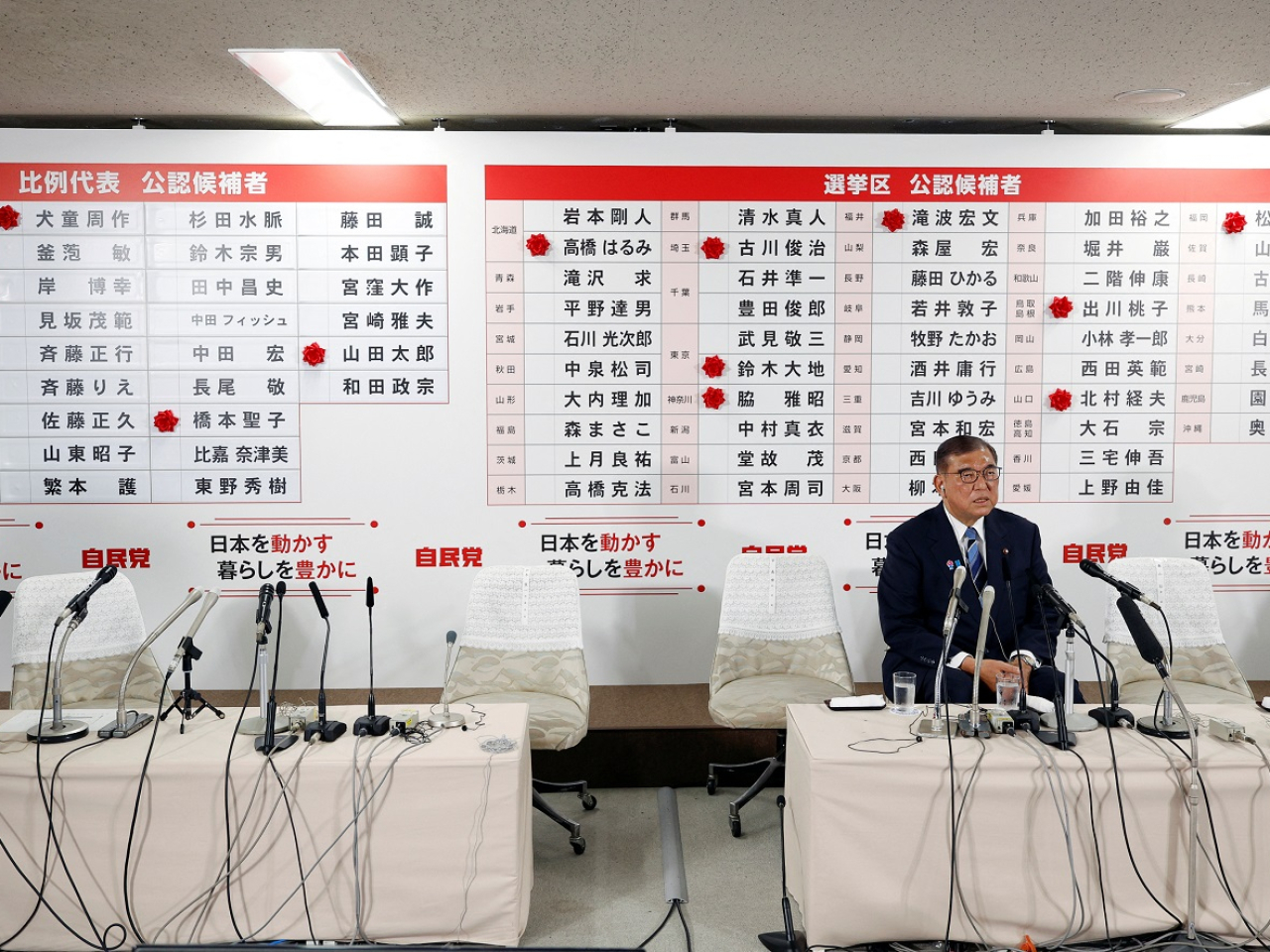Japan's shaky ruling coalition is likely to lose control of the upper house, exit polls showed after Sunday's election, potentially heralding political turmoil as a tariff deadline with the United States looms.
While the ballot does not directly determine whether Prime Minister Shigeru Ishiba's minority government falls, it heaps pressure on the embattled leader who also lost control of the more powerful lower house in October.
Ishiba's Liberal Democratic Party (LDP) and coalition partner Komeito need 50 seats to secure the 248-seat upper chamber in an election where half the seats were up for grabs.
They are forecast to hold 32 to 51 seats, the exit poll by public broadcaster NHK showed. Other broadcasters forecast the ruling coalition would return 41-43 seats. If the coalition drops below 46 seats, it would mark its worst result since it was formed in 1999.
That comes on top of its worst showing in 15 years in October's lower house election, a vote which has left Ishiba's administration vulnerable to no-confidence motions and calls from within his own party for leadership change.
Speaking two hours after polls closed to public broadcaster NHK, Ishiba said he "solemnly" accepted the "harsh result".
Asked whether he intended to stay on as prime minister and party leader, he said "that's right".
"We are engaged in extremely critical tariff negotiations with the United States... we must never ruin these negotiations. It is only natural to devote our complete dedication and energy to realising our national interests," he later told TV Tokyo.
Japan, the world's fourth largest economy, faces a deadline of August 1 to strike a trade deal with the United States or face punishing tariffs in its largest export market.
The main opposition Constitutional Democratic Party is projected to win 18 to 30 seats, from 22 held previously, NHK's exit poll showed.
The far-right Sanseito party, birthed on YouTube a few years ago, has been the surprise package with its "Japanese First" campaign and warnings about a "silent invasion" of foreigners. It is forecast to win 10-15 seats in the chamber, up from one held previously, yet it holds only three seats in the lower house.
Opposition parties advocating for tax cuts and welfare spending have struck a chord with voters, the exit polls showed, as rising consumer prices – particularly a jump in the cost of rice – have sowed frustration at the government's response.
"The LDP was largely playing defence in this election, being on the wrong side of a key voter issue," said David Boling, a director at consulting firm Eurasia Group.
"Polls show that most households want a cut to the consumption tax to address inflation, something that the LDP opposes. Opposition parties seized on it and hammered that message home."
The LDP has been urging for fiscal restraint, with one eye on a very jittery government bond market, as investors worry about Japan's ability to refinance the world's largest debt pile. (Reuters)





